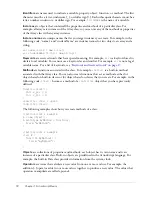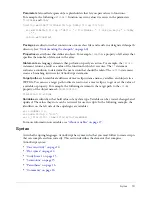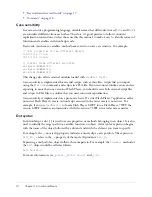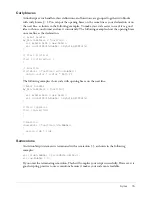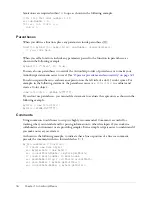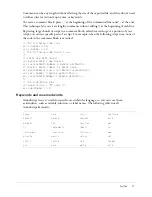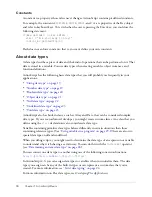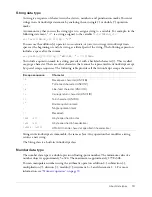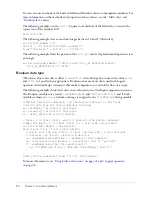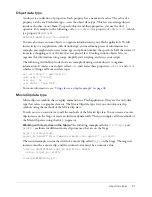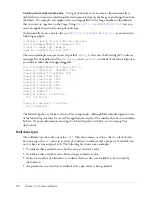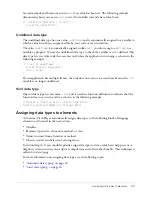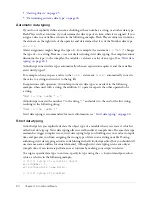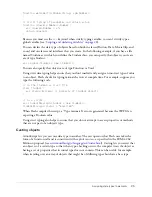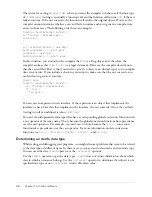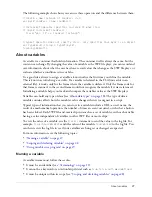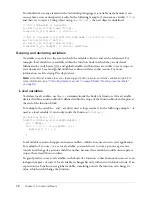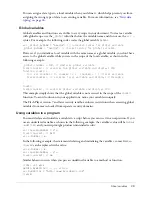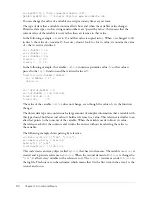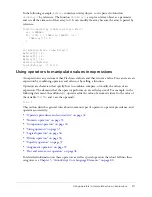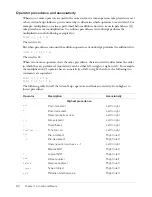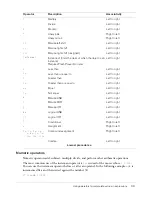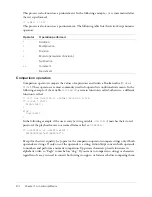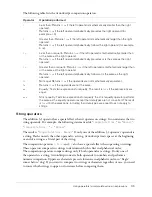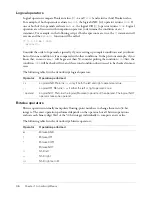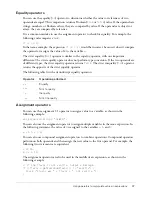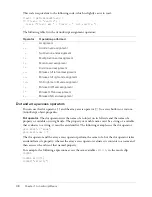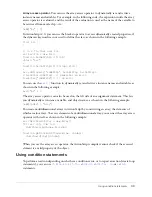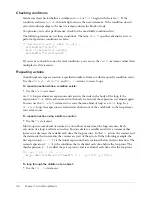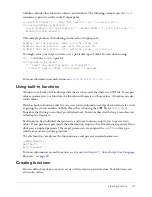
26
Chapter 1: ActionScript Basics
The syntax for casting is
type(item)
, where you want the compiler to behave as if the data type
of
item
is
type
. Casting is essentially a function call, and the function call returns
null
if the cast
fails at runtime. If the cast succeeds, the function call returns the original object. However, the
compiler cannot determine whether a cast will fail at runtime and won’t generate compile-time
errors in those cases. The following code shows an example:
function bark(myAnimal:Animal) {
var foo:Dog = Dog(myAnimal);
foo.bark();
}
var curAnimal:Animal = new Dog();
bark(curAnimal); // will work
curAnimal = new Cat();
bark(curAnimal); // won't work
In this situation, you asserted to the compiler that
foo
is a Dog object, and, therefore, the
compiler assumes that
temp.bark()
; is a legal statement. However, the compiler doesn’t know
that the cast will fail (that is, that you tried to cast a Cat object to an Animal type), so no compile-
time error occurs. If you include a check in your script to make sure that the cast succeeds, you
can find casting errors at runtime.
import Dog;
function bark(myAnimal:Animal) {
var foo:Dog = Dog(myAnimal);
if (foo) {
foo.bark();
}
}
You can cast an expression to an interface. If the expression is an object that implements the
interface or has a base class that implements the interface, the cast succeeds. If not, the cast fails.
Casting to null or undefined returns
undefined
.
You can’t override primitive data types that have a corresponding global conversion function with
a cast operator of the same name. This is because the global conversion functions have precedence
over the cast operators. For example, you can’t cast to Array because the
Array()
conversion
function takes precedence over the cast operator. For more information on data conversion
functions, see
Array()
,
Boolean()
,
Number()
,
Object()
, and
String()
.
Determining an item’s data type
While testing and debugging your programs, you might discover problems that seem to be related
to the data types of different items. In these cases, you may want to determine an item’s data type.
You can use either the
typeof
operator or the
instanceof
operator.
Use the
typeof
operator to get the data types;
typeof
does not return information about which
class to which an instance belongs. Use the
instanceof
operator to determine if an object is of a
specified data type or not;
instanceof
returns a Boolean value.
Summary of Contents for FLEX-FLEX ACTIONSCRIPT LANGUAGE
Page 1: ...Flex ActionScript Language Reference...
Page 8: ......
Page 66: ...66 Chapter 2 Creating Custom Classes with ActionScript 2 0...
Page 76: ......
Page 133: ...break 133 See also for for in do while while switch case continue throw try catch finally...
Page 135: ...case 135 See also break default strict equality switch...
Page 146: ...146 Chapter 5 ActionScript Core Language Elements See also break continue while...
Page 808: ...808 Chapter 7 ActionScript for Flash...
Page 810: ...810 Appendix A Deprecated Flash 4 operators...
Page 815: ...Other keys 815 Num Lock 144 186 187 _ 189 191 192 219 220 221 222 Key Key code...
Page 816: ...816 Appendix B Keyboard Keys and Key Code Values...
Page 822: ...822 Index...

